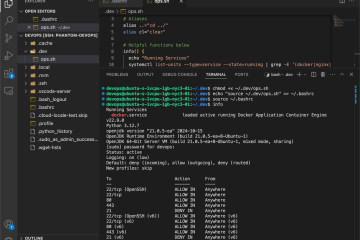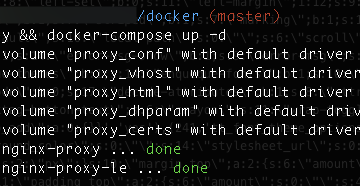This article shows how to search for files and content using ripgrep, a fast and powerful modern alternative to traditional Unix search tools.
See also: Search files in Bash: grep, find, and ag a past article about older tools.
What is ripgrep?
Ripgrep (rg) is a line-oriented search tool that recursively searches your current directory for a regex pattern. It’s designed to be a faster, more user-friendly alternative to traditional Unix search tools like grep, find, and ag.
Created by Andrew Gallant (burntsushi), ripgrep combines the best features of other search tools while focusing on speed, smart filtering, smart case sensitivity, and better support for unicode and output.
Installing ripgrep
On macOS
The easiest way to install ripgrep on macOS is using Homebrew:
brew install ripgrepOn other systems
- Linux: depending on your system :
sudo [apt|dnf|pacman -S] install ripgrep - Windows: depending on your pkg manager: [choco|scoop] install ripgrep
How ripgrep outperforms other tools
Ripgrep offers several advantages over traditional search tools:
- Speed: ripgrep is consistently faster than
grep,ack,ag(the silver searcher), and other similar tools, especially on large codebases. - Smart defaults: you have to keep them in mind when searching (^^)
- Automatically respects
.gitignore - Skips hidden files and binary files by default
- Uses smart case matching (case-insensitive unless you include uppercase)
- Automatically respects
- Better output:
- Pretty, colorized output by default
- Line numbers included automatically
- Context display options built-in
- Unicode support: Properly handles Unicode text and can search in any language.
- Modern features: Built-in filtering by file type, recursive directory searches by default, and powerful regex support.
Let’s see how ripgrep works in practice with examples similar to the traditional Unix search tools discussed in your previous article.
Search by pattern
The basic syntax for ripgrep is:
rg [options] pattern [path]If you don’t specify a path, ripgrep searches in the current directory recursively.
Simple text search
# Search for "error" in current directory and subdirectories
rg error
# Search for "error" only in a specific file
rg error filename.txt
# Search for "error" only in a specific directory
rg error ./src/Regular expression search
Ripgrep uses Rust’s regex engine, which is similar to Perl-style regex:
# Find lines containing an email address
rg '\b[A-Za-z0-9._%+-]+@[A-Za-z0-9.-]+\.[A-Za-z]{2,}\b'
# Find all function definitions in JavaScript files
rg 'function\s+\w+\s*\(' --type jsSearch by file type
One of ripgrep’s powerful features is its built-in file type detection.
List available file types
rg --type-listSearch only in specific file types
# Search only in Python files
rg 'import' --type py
# Search only in JavaScript and TypeScript files
rg 'function' --type js --type ts
# Search only in markdown files
rg 'TODO' --type mdSearch by file extension
# Search only in .log files
rg 'error' -g '*.log'
# Search in multiple specific extensions
rg 'config' -g '*.{json,yaml,yml}'Search by file content
Ripgrep is primarily designed to search file content efficiently.
# Search for the word "password" in all files
rg 'password'
# Case-sensitive search
rg -s 'Password'
# Word boundaries (search for whole word matches only)
rg -w 'log'
# Display 2 lines before and after each match
rg -C2 'error'Advanced search options
Ripgrep offers many advanced options to refine your searches:
Show only filenames of matching files
rg -l 'TODO'Count matches per file
rg -c 'function'Fixed string search (not regex)
rg -F '(special.chars)'rg --hidden 'config'Follow symbolic links
rg --follow 'import'Match multiple patterns
rg -e 'error' -e 'warning' -e 'critical'Combining search criteria
You can combine multiple search criteria for more targeted searches:
# Search for "config" in Python files modified in the last week
find . -name "*.py" -mtime -7 | xargs rg 'config'
# Or using ripgrep's built-in functionality
rg 'config' --type py --sortr modifiedExcluding files and directories
Ripgrep already excludes files in .gitignore, binary files, and hidden files by default. You can further customize exclusions:
Explicitly ignore specific directories
# Ignore the "node_modules" directory
rg 'function' --glob '!node_modules'
# Ignore multiple directories
rg 'import' --glob '!{node_modules,dist,build}'Use a custom ignore file
Create a file named .rgignore in your project directory with patterns to ignore:
# .rgignore example
*.log
temp/
build/
*.min.jsTemporarily search everything
If you want to override the default ignores:
# Search everything, including hidden files, binaries, and ignored files
rg --no-ignore --hidden --binary 'password'Conclusion
Ripgrep is a modern, fast, and user-friendly search tool that combines the best features of traditional Unix search tools while offering significant performance improvements. Its smart defaults make it immediately useful without complex configuration, while its extensive options allow for powerful customization when needed.
For developers and system administrators, ripgrep should be a standard part of your toolkit, potentially replacing multiple traditional search tools with a single, more efficient alternative.



0 Comments